Family estrangement is pretty common among LGBTQ+ people. In fact, 31% of LGBTQ+ young adults say they worry that their parents or guardians wouldn’t accept them. Some may come around later in life, some may not; but they still might feel some right to their parents possessions when they pass away.
Recently, one woman shared a story of how she inherited her neighbor’s estate, but the deceased woman’s estranged gay daughter complicated the situation. After she refused to share the money with the daughter and got some harshly-worded texts, she started to wonder: would she be the bad guy in this situation if she didn’t give her anything?
A woman befriended her neighbor and ended up the main benefactor of her inheritance

Image credits: YuriArcursPeopleimages (not the actual photo)
But the deceased woman’s gay estranged daughter demanded a portion of the money

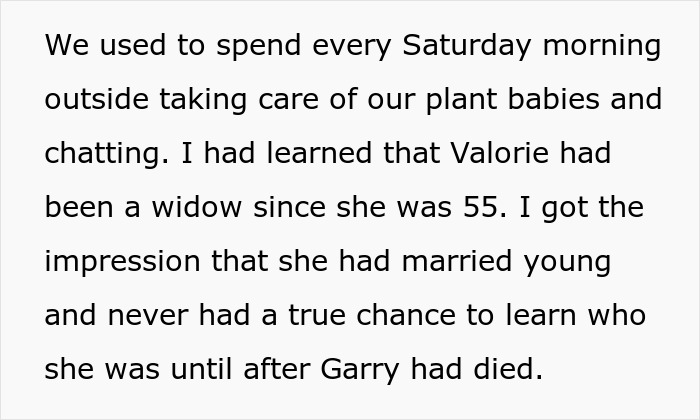
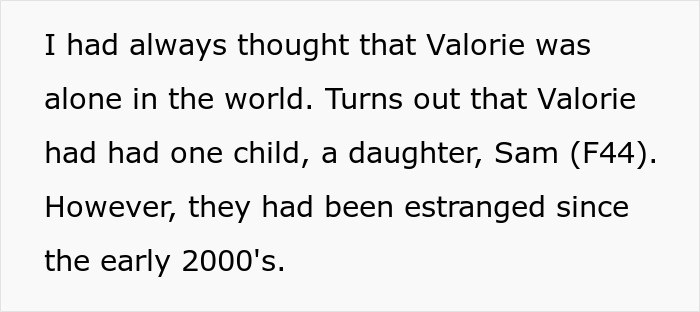
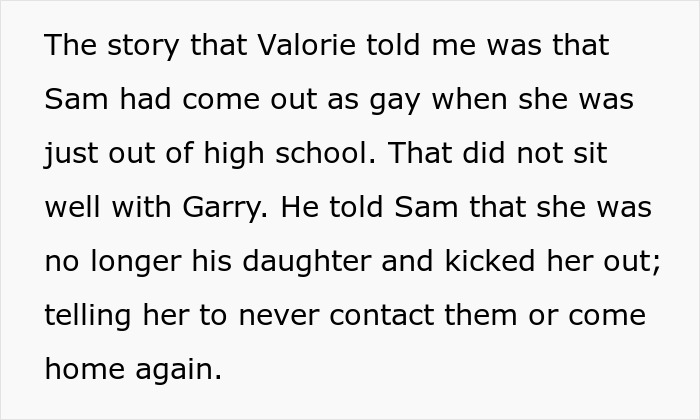

Image credits: seventyfourimages (not the actual photo)
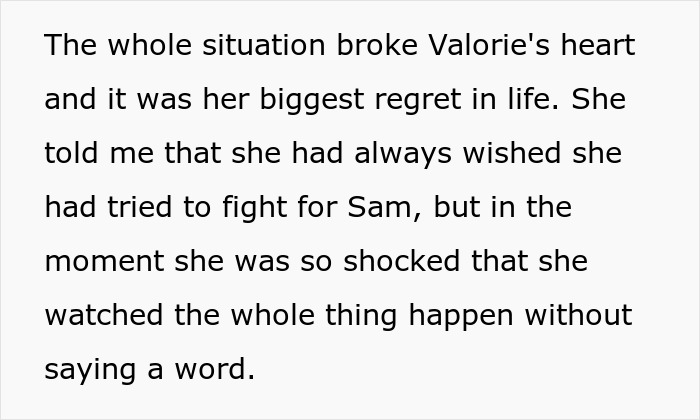
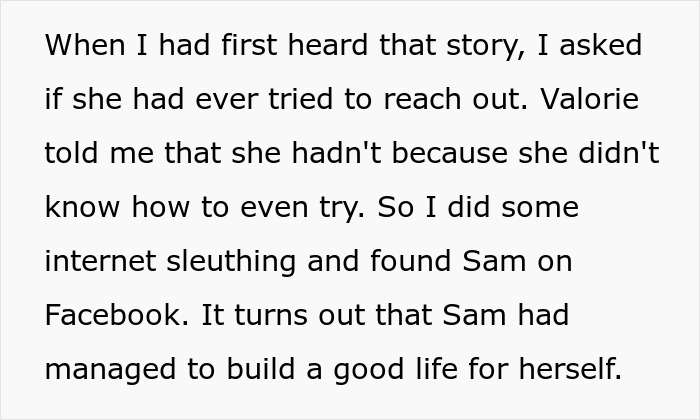
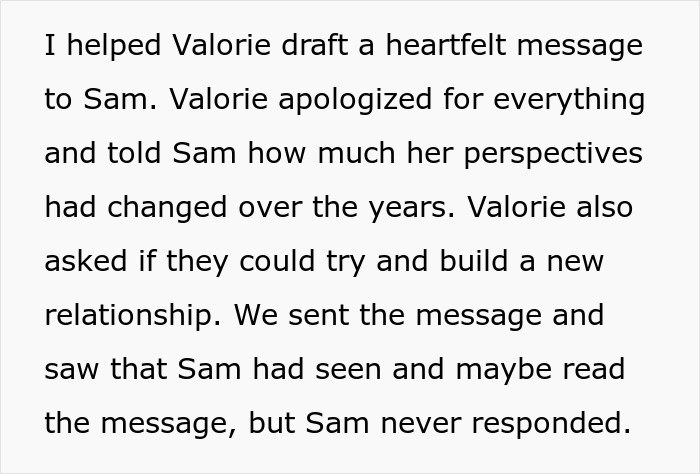



Image credits: katchanatsarin (not the actual photo)
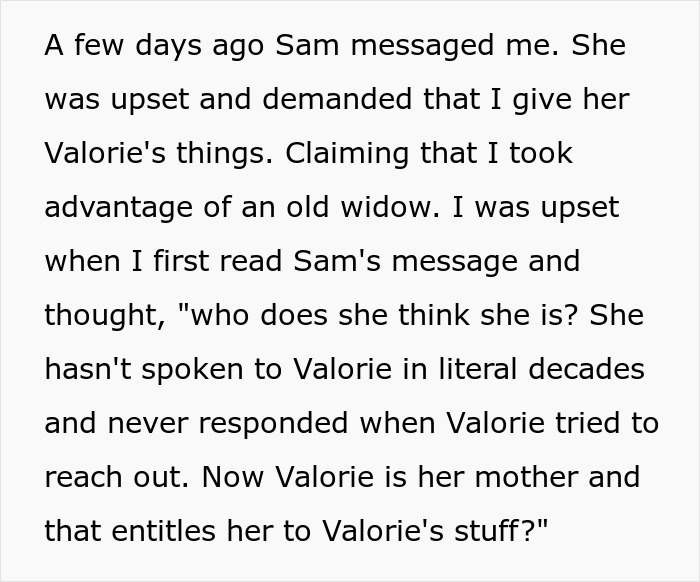

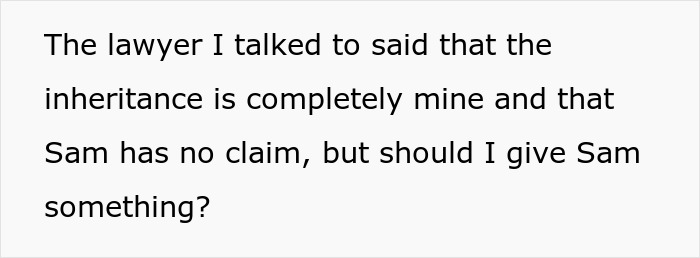
Image credits: CharacterQuality5429
Estranged children can contest their parent’s will, but it can be a long and hard process
There seems to be a deepening rift between parents and adult children. A study in 2022 reported that one in 10 adults say they’re estranged at least from one parent. And while 81% of estrangements with mothers end in reconciliation, the feud can continue even after the parent’s deceased.
Legal experts say that whether a family member is estranged has no impact on their capacity to contest a will. If the deceased person had no spouse, adult children are the next of kin, and, therefore, direct heirs.
However, most experts warn that contesting a will can be a long and difficult process. If the child is named in the will as a partial beneficiary already, they might lose their assets if their challenge of the will fails.
But if they really are set on contesting, they would need to prove there are enough grounds to change the will. The experts from the California-based Keystone Law Group point out seven reasons that could be successful when contesting a will:
-
Undue influence;
-
Lack of capacity;
-
Fraud,
-
Forgery,
-
Lack of due execution;
-
Mistake,
-
And revocation.
The attorneys also warn that the success rate of contesting wills is usually low. Courts tend to uphold the wishes of the deceased in most cases unless the contestant can provide really strong evidence.
The experts at Obenshain Law, on the other hand, note that in the cases of parental estrangement, wills get overturned more often. “Perhaps the source of your estrangement is isolation by a caretaker or adverse sibling,” they suggest. Medical conditions, such as dementia, can also play a role, as the parent might not be thinking clearly or misled by a person close to them.
Parents should always be the ones to make first contact with an estranged child
The commenters divided themselves into two camps: some thought “Valorie” was a terrible parent for kicking out and then not contacting her gay daughter for years. Others thought “Sam” was wrong to harbor a grudge for so long and refuse to reconnect with her mother.
When it comes to queer children and parents repairing their relationships, parents should be the ones to reach out. That’s what licensed psychologist Nathan Brandon, Psy.D., told Bored Panda in a previous interview.
“The onus of repairing a strained relationship ideally lies on both parties,” he explained to us back then. “However, in cases where parents reject their child’s identity, the primary responsibility should be with the parents to overcome their prejudices.”
“It’s essential to understand that the rejection and the pain inflicted by it are not the responsibility of the queer person. An individual should never be made to feel they need to change their fundamental identity to be accepted by their family.”
But there is a caveat: if the parents are willing to reconnect and are sorry for their past actions, reconciliation would make sense. “Reconciliation is a personal decision that should be made with the well-being of the queer individual at the forefront,” Brandon emphasized.
Some netizens blamed the neighbor, not the author: “Valorie was a bad parent”
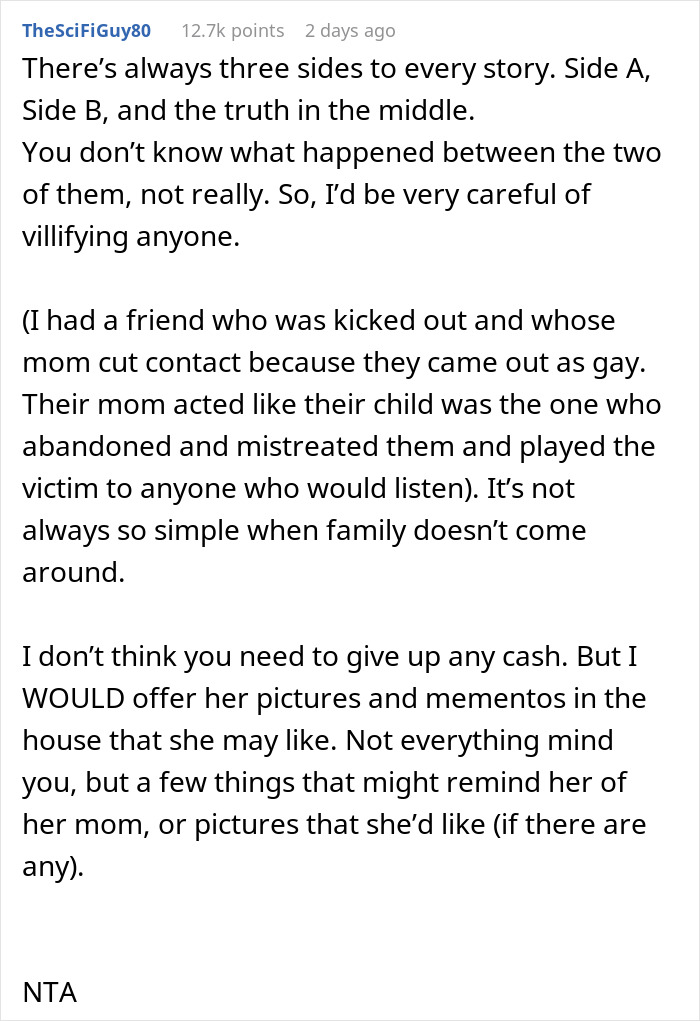
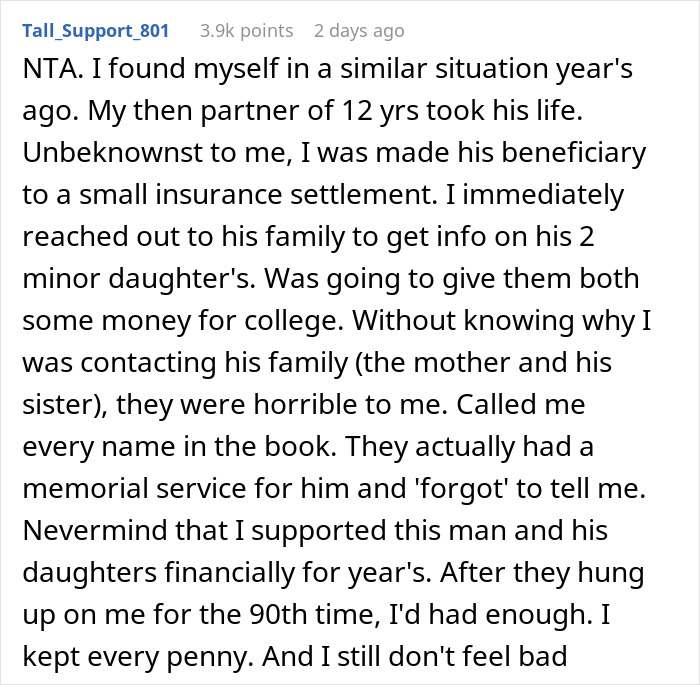
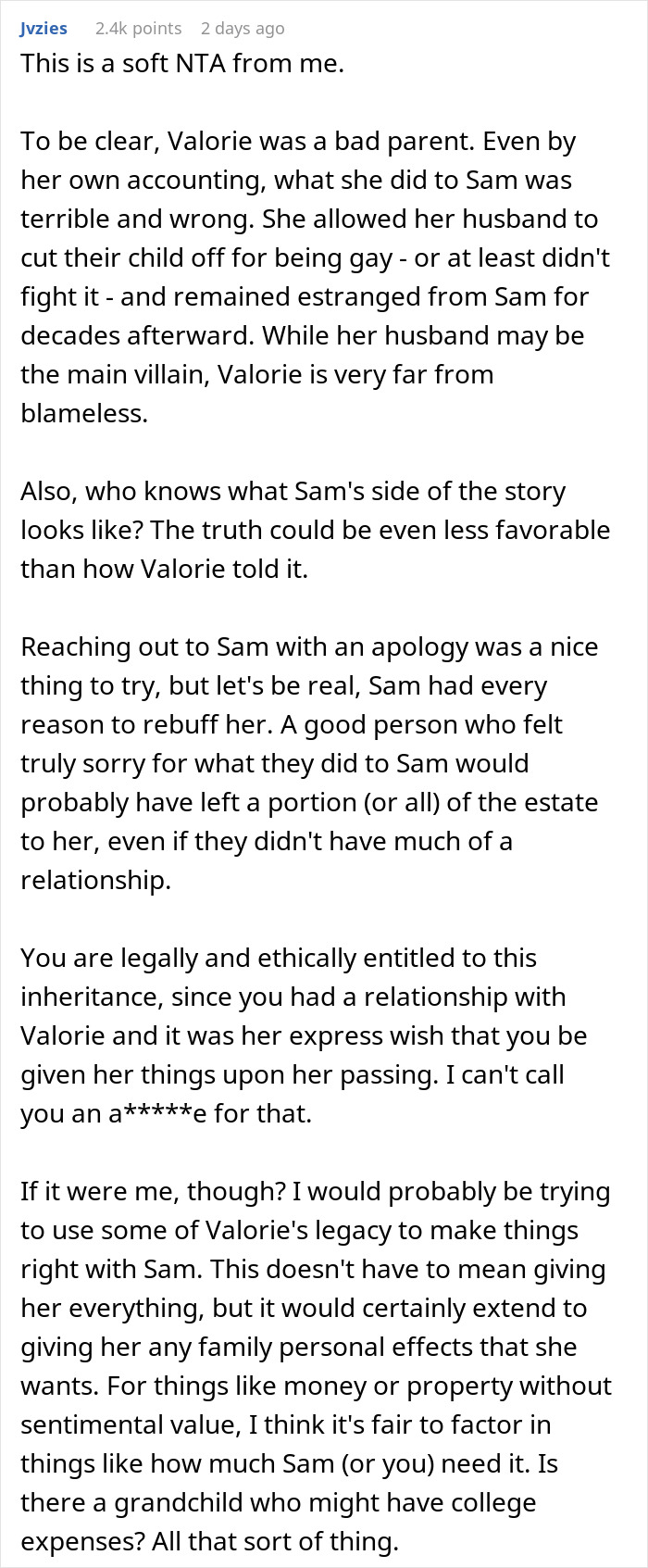
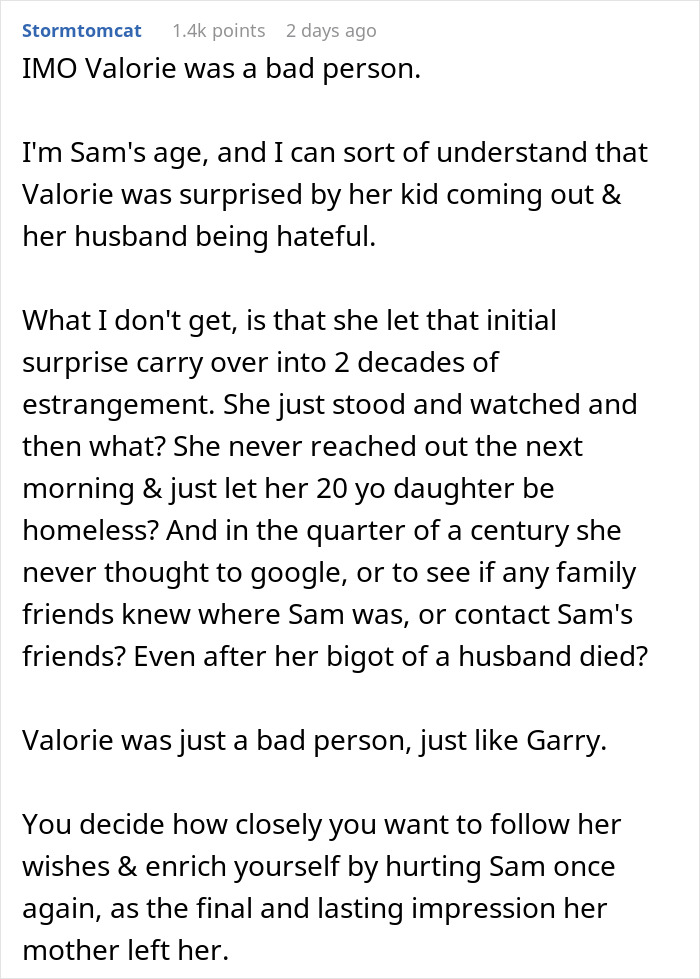

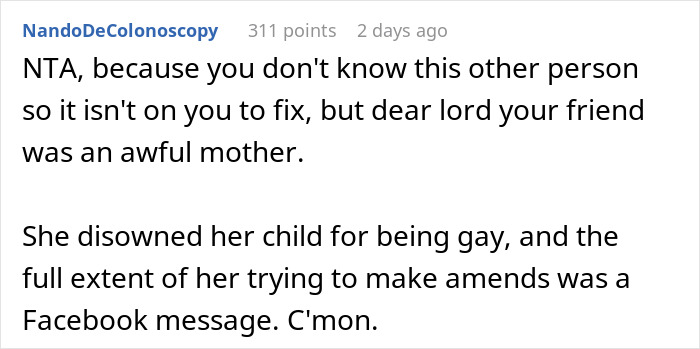
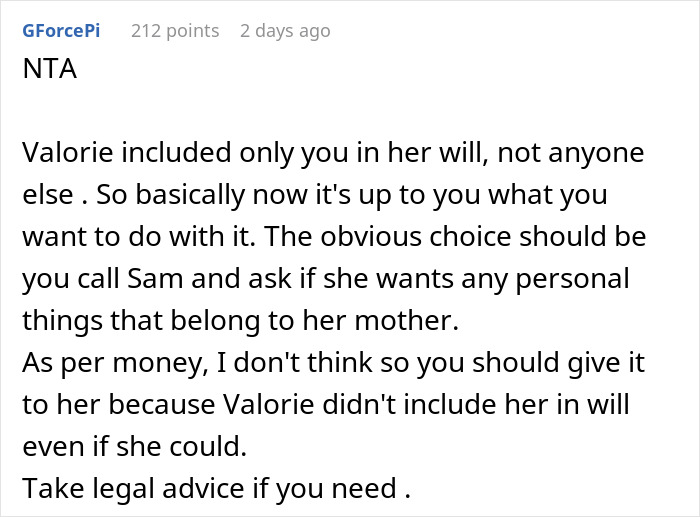
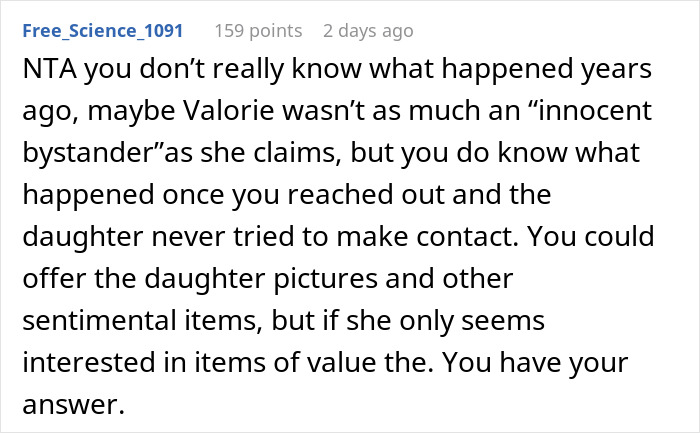
Others thought the daughter had valid reasons to be mad and deserved a portion of the inheritance
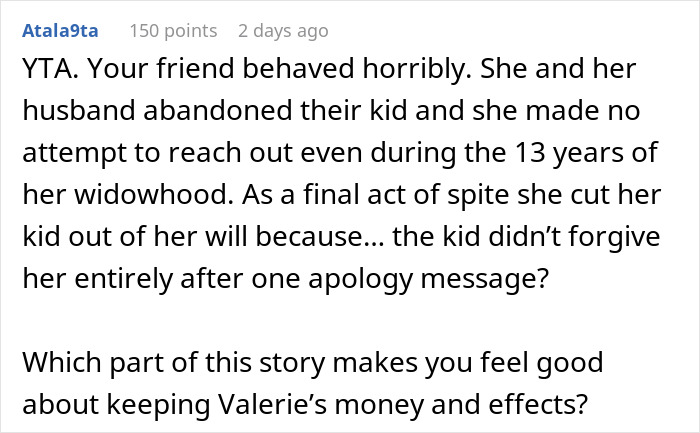
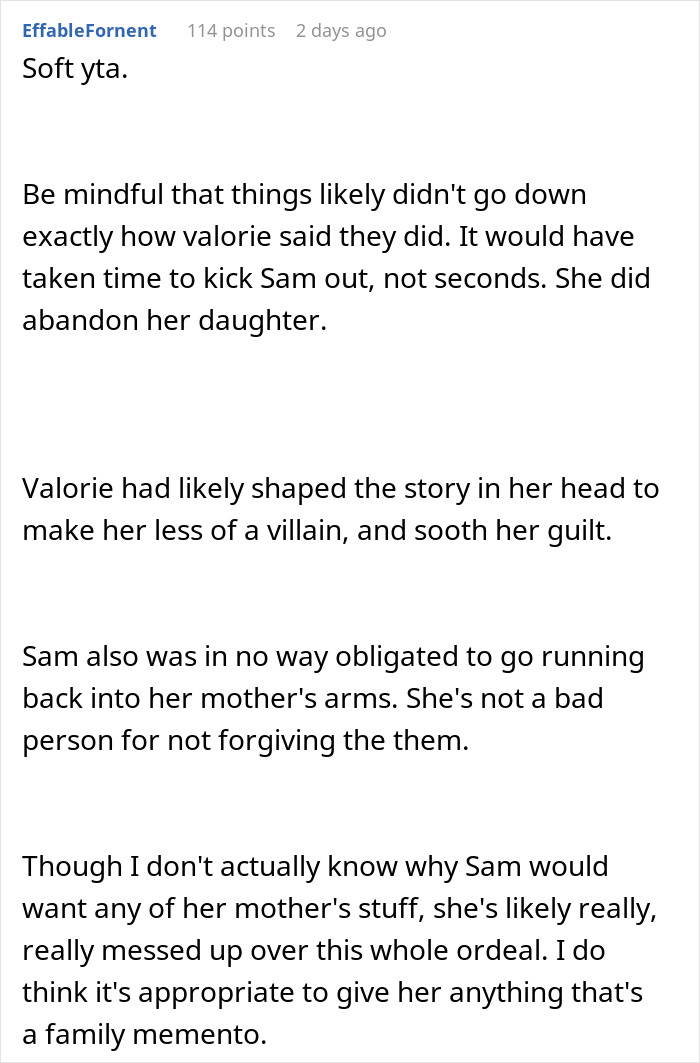
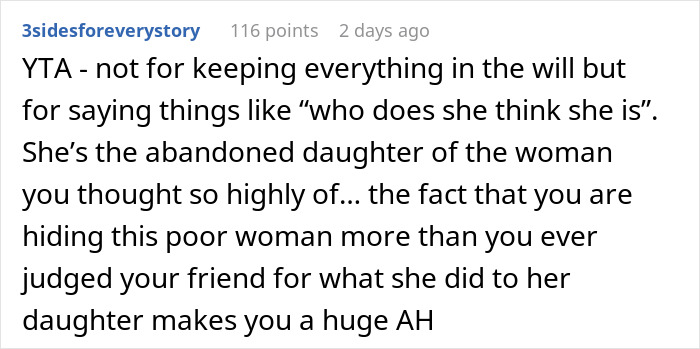

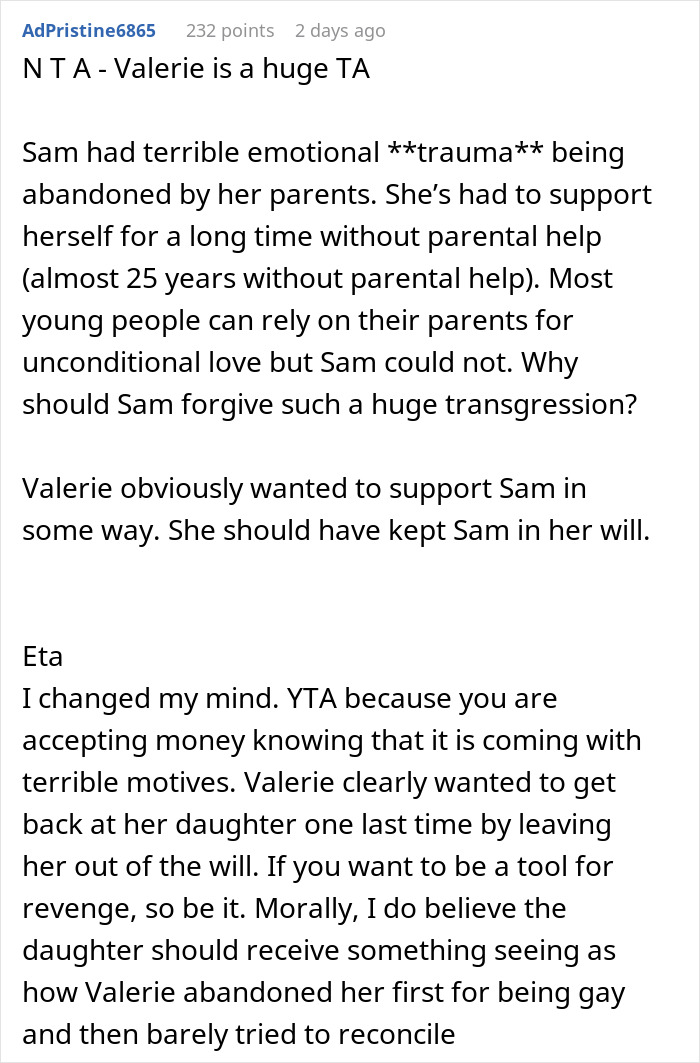
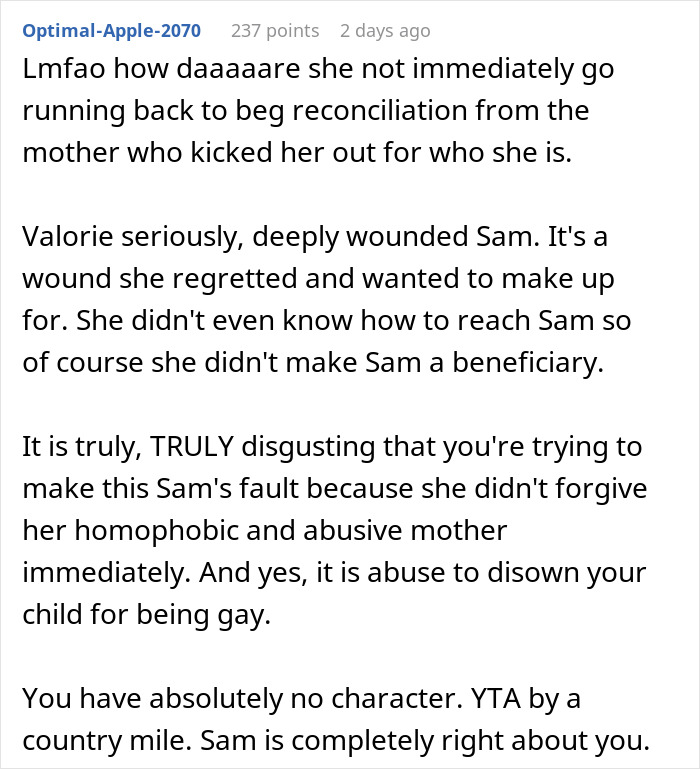
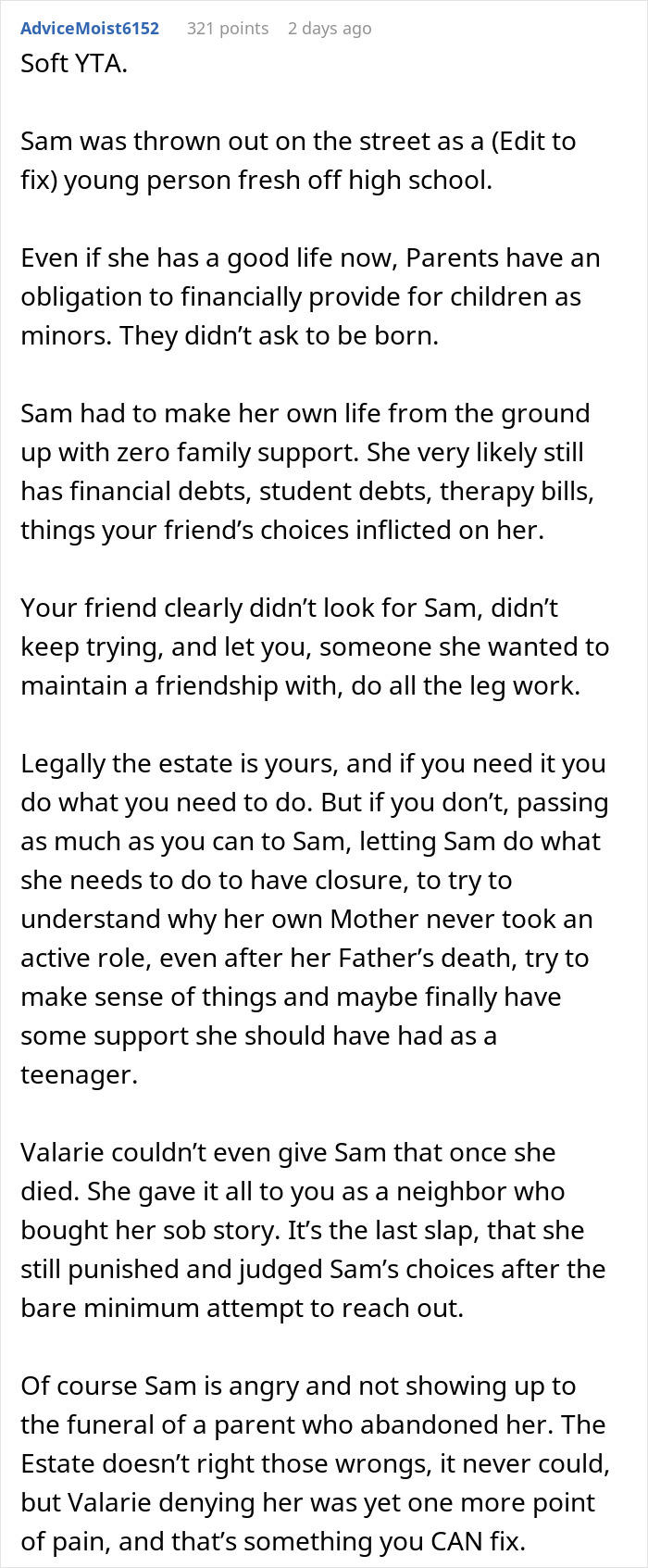
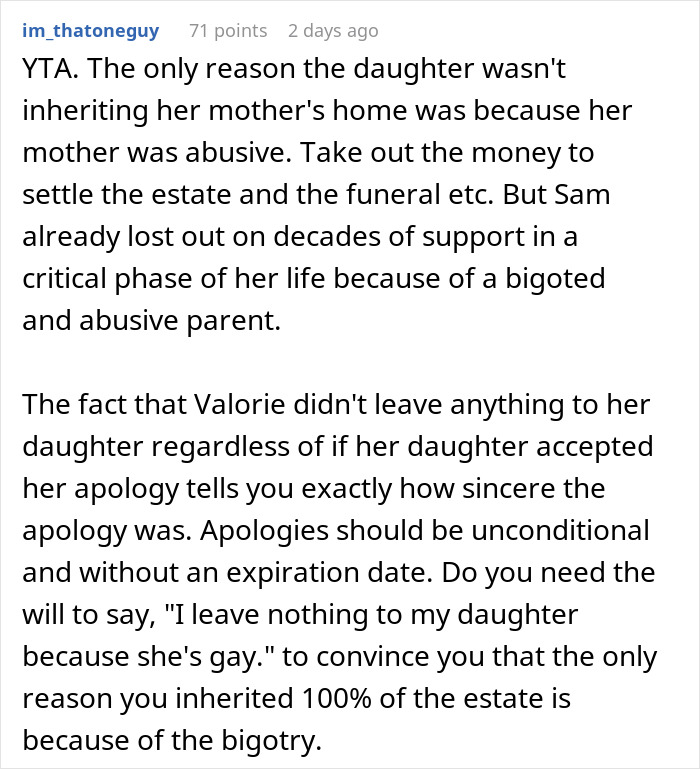
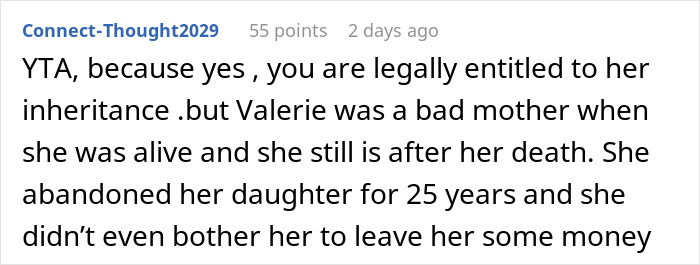
After her post went viral, the woman provided more details about Valorie and her daughter’s relationship
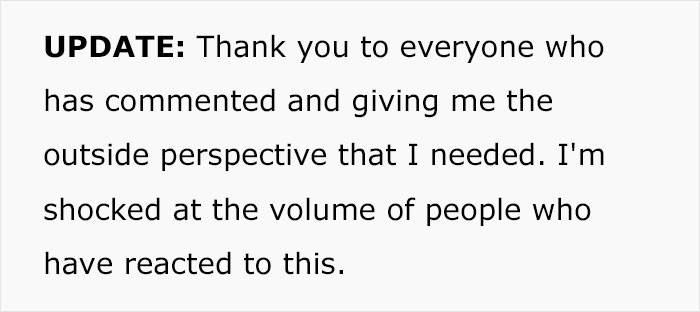




Image credits: vadymvdrobot (not the actual photo)
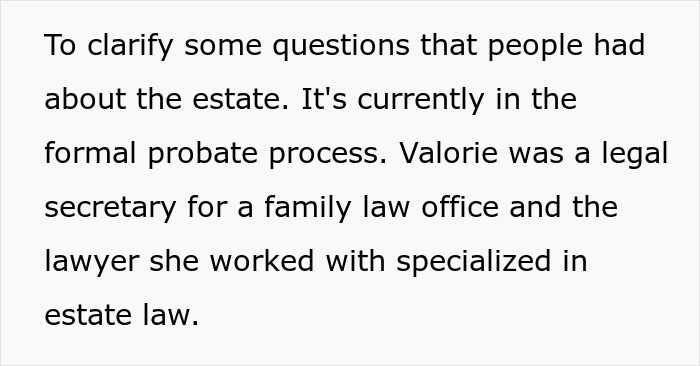
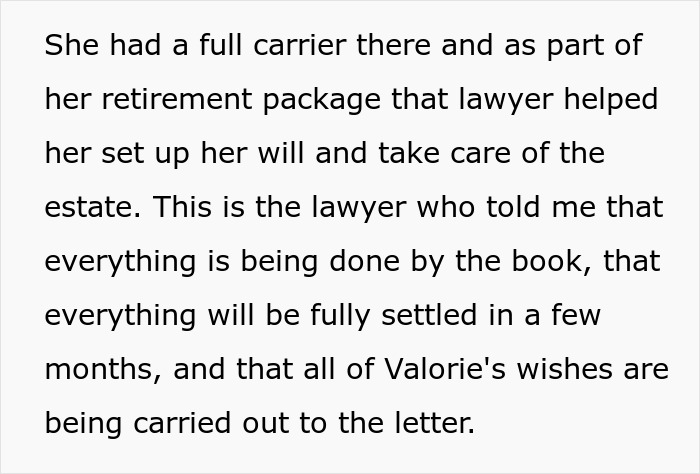
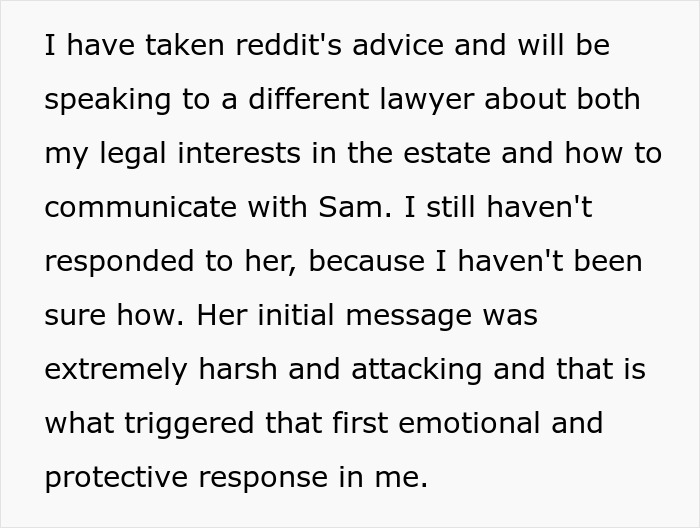
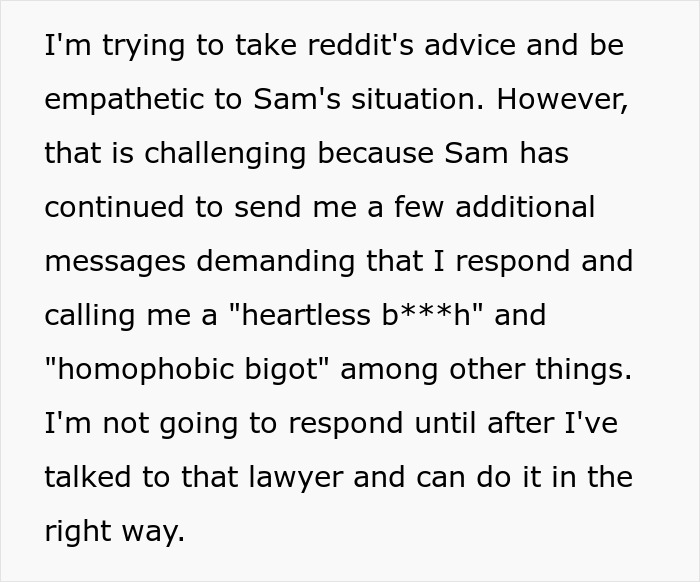


Image credits: Meteoritka (not the actual photo)
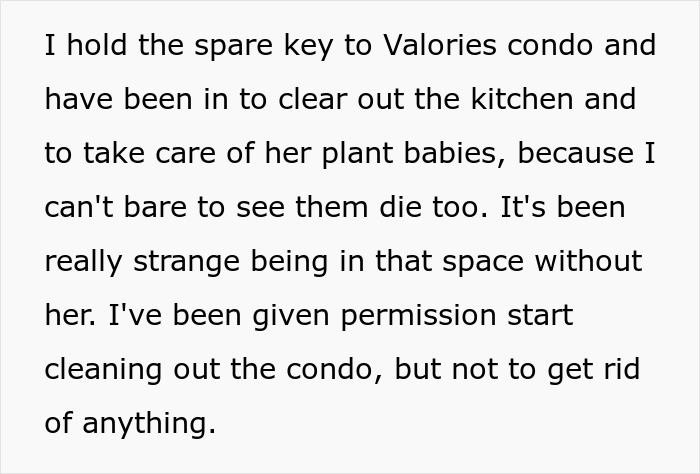
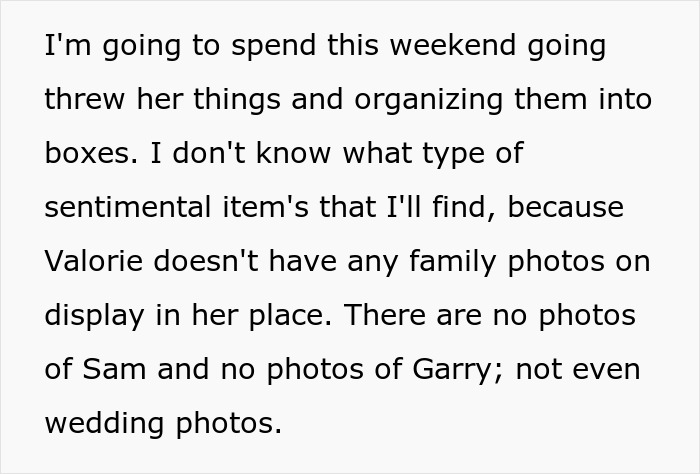

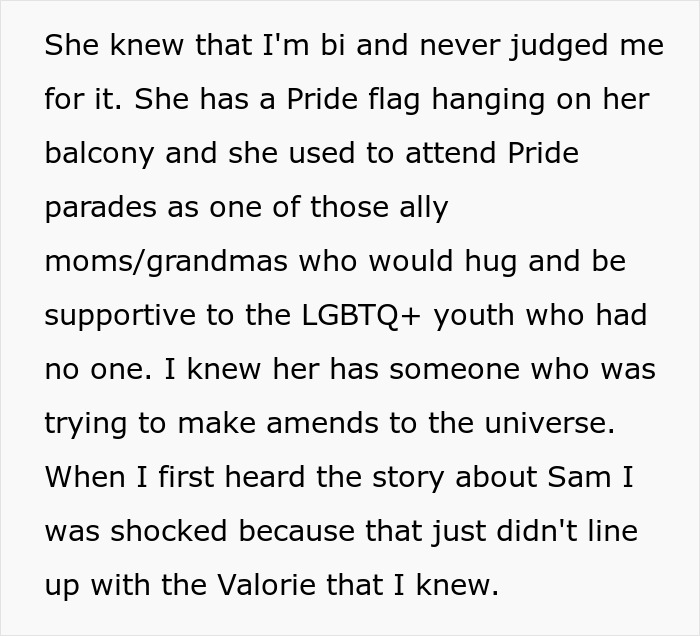
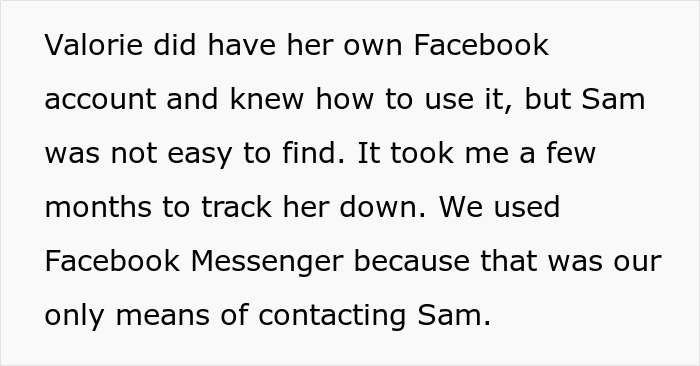
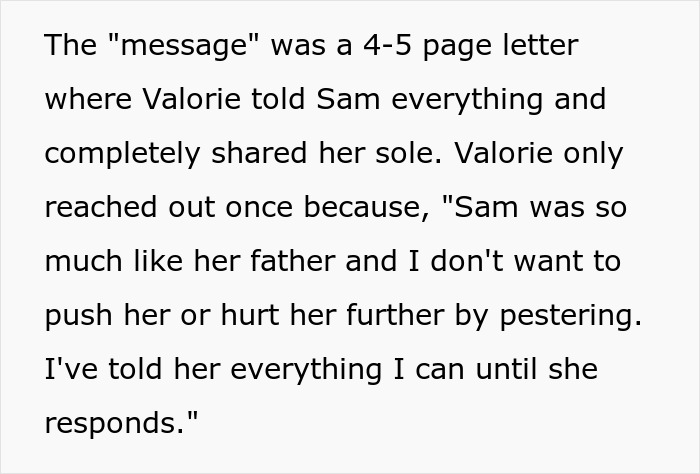

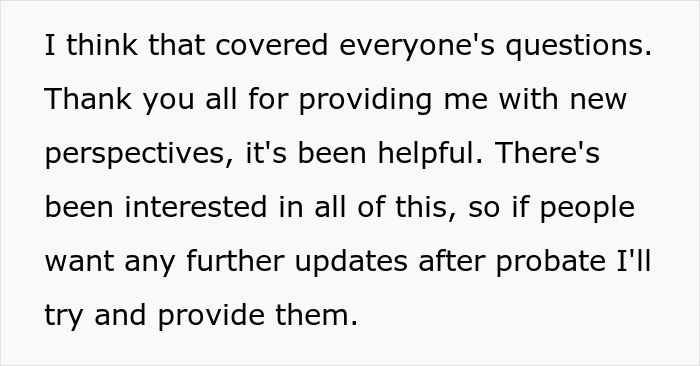
Image credits: CharacterQuality5429
“WIBTA If I Don’t ‘Share’ The Inheritance That I Received From A Friend With Her Daughter?” Bored Panda






